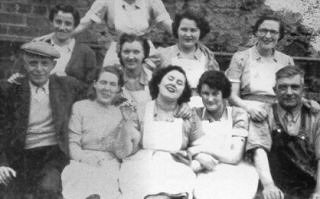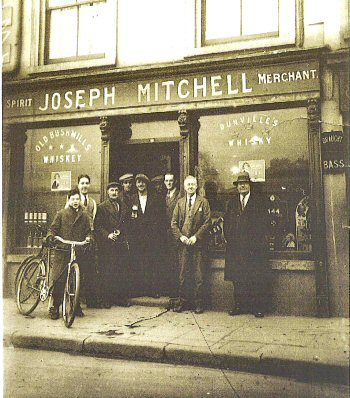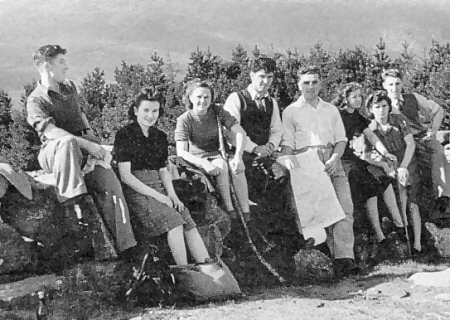She was a formidable character, the farm woman of old.
‘Don’t work for a woman,’ the old labourers would advise. ‘They never know what’s in a day’s work.’
In truth, she was more energetic and capable and expected no less from the men. She came to the head-rig with ‘dinner for the field’ and after the meal – amid compliments satirical and genuine, the teasing and earthy, adult repartee in traditional phrases about love and marriage and children or the lack of them, she stayed to help.
In between the preparation and the hectic scamper of setting or sowing she found time to ‘cut the seed’. This time she found – ‘idle time’ – was to get to a barn where she squatted on a creepie stool, bent over a heap of potatoes which she was slitting expertly to make seed with just enough eyes or buds and no more (or she gouged those out) and so make ordinary white potatoes go further.
Sometimes she was giving a hand there, to an old woman who had come to do the task for wages. When we saw these waifs – most of them ‘going the roads’ in spring, their dark shawls about them – we knew they were off to ‘cut seed’ for someone and glad to get the money. Many of them subsisted on ‘poor relief’ doled out in the local dispensary each week.
‘They have the back for it’, the men sometimes said wryly, evasively, but it was a belief then. When a man had his drills ready for planting, he might say wishfully,
‘Man, if only two or three tight, strappin’ lumps o’ weemen would slip a braskin about them and drop me seed, I’d have that field in, in junk time!’








